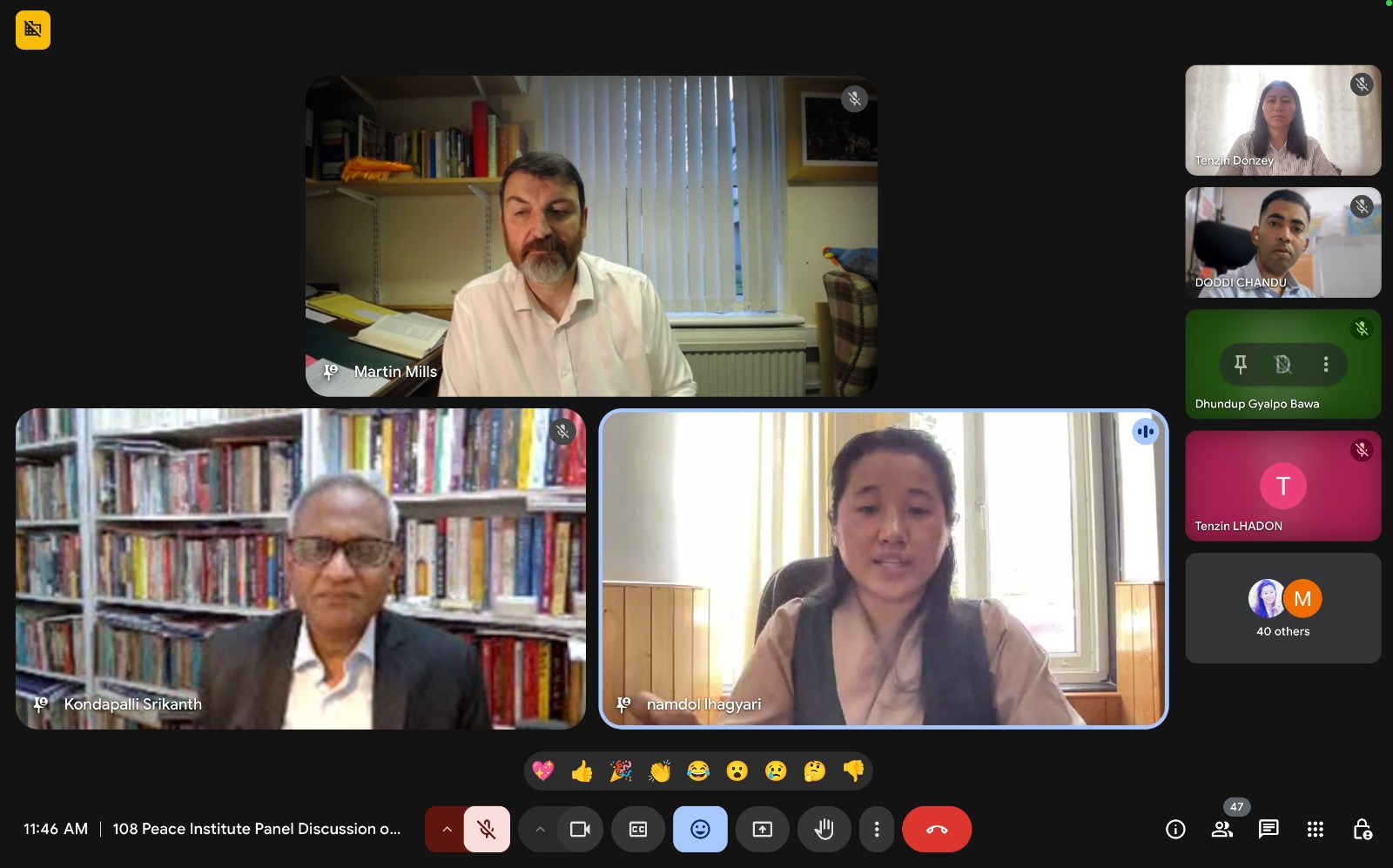April 23, 2025: 108 Peace Institute hosted an insightful webinar titled ‘The Politics of Reincarnation: Tibet, India, and China’.
The panel featured distinguished speakers: Dr. Martin Mills, Chair of Anthropology at the University of Aberdeen, Scotland, and Namgyal Dolkar Lhagyari, Member of the Tibetan Parliament in Exile (TPiE). Dr. Srikanth Kondapalli, Professor of Chinese Studies at the Centre for East Asian Studies, SIS, Jawaharlal Nehru University moderated the discussion.
Dr. Srikanth Kondapalli opened the session with an overview of the political urgency surrounding the reincarnation of the Dalai Lama and highlighted concerns over the Chinese Communist Party’s interference in the Tibetan Buddhist reincarnation system.
Dr. Martin Mills explored the broader issues of reincarnation, succession, and cultural translation. He emphasized that one of the most pressing challenges for Tibetans in exile is effectively conveying the spiritual and cultural significance of reincarnation to the international community. Dr. Mills warned that failure to do so could lead to a cultural crisis on the scale of the Panchen Lama’s contested succession in the 1990s—or even greater.
He elaborated on the traditional Tibetan methods of identifying reincarnations, which include divination, oracular pronouncements, visions, and the testing of candidates for karmic signs (tendrel) associated with the previous incarnation’s possessions. In contrast, he critiqued the Chinese government’s promotion of the Golden Urn system, noting that it was originally introduced by the Qianlong Emperor as an anti-corruption measure for appointing local governors—not as a legitimate religious mechanism for selecting reincarnate lamas. This, Dr. Mills noted, undermines the authenticity and spiritual purpose of Tibetan reincarnation practices.
Namgyal Dolkar Lhagyari stressed that reincarnation in Tibetan Buddhism is a deeply spiritual process aimed at continuing the unfinished work of previous incarnations. She strongly condemned China’s State Religious Affairs Bureau Order No. 5, “Measures on the Management of the Reincarnation of Living Buddhas in Tibetan Buddhism”, which is based on the prior decree issued by the CCP and State Council on managing religious affairs published in 1991.
Lhagyari called upon the Indian Parliament to pass a resolution affirming support for the Tibetan Buddhist reincarnation system and rejecting foreign interference. She also highlighted the need for coordinated international action to safeguard the religious freedom and cultural integrity of the Tibetan people.
The session saw robust participation, including discussions on the potential for a U.S.-India partnership on the issue of reincarnation. Around 50 attendees—including students, scholars, activists, and diplomats—joined from over 12 universities, think tanks, and organizations across India, Nepal, Bhutan, and the United States.
The webinar concluded with a collective commitment to raise the issue of Tibetan reincarnation on international platforms and to advocate for a process free from interference by the Chinese Communist Party.
